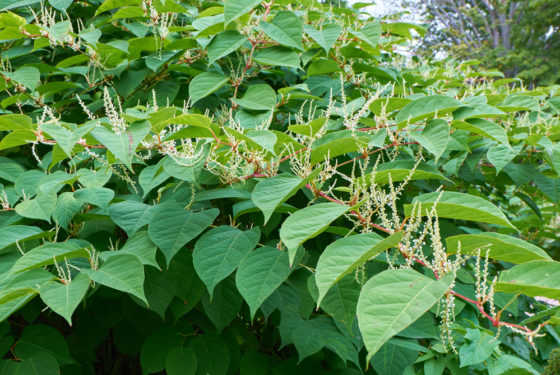Japanese leaf flea may solve the Dutch knotweed problem

The Japanese leaf flea, the natural enemy of the Japanese knotweed, has survived the Dutch winter and can be used to combat the invasive plant, researchers of Leiden University’s Biology Institute have found.
The leaf fleas (aphalari itadori), which feed on the sap knotweed buds need to grow, were let loose in three trial locations in October last year.
Not only did they attack the knotweed, they also multiplied. ‘It is very important that they did because we need a lot of fleas to tackle the problem,’ head researcher Suzanne Lommen told broadcaster NOS.
Knotweed, which grows at a rate of 10 centimetres a day, and has been damaging buildings, roads and pipes is extremely difficult to eradicate. Poison injections, electrocution and boiling water have all been tried as remedies but nothing has worked so far.
Researchers then found the weed did not flourish in Japan and quickly discovered it was kept in check by the leaf flea.
In one of the locations chosen for the experiment, a cycle path in Amsterdam Zuid, the fleas had kept the plant down to one metre high, whereas normally it would have shot up to five.
‘If the flea becomes a permanent fixture here we have a cheap and environmentally friendly way of keeping knotweed in check, which we can combine with more expensive methods,’ Lommen said.
Like the plant, which was originally brought here in the 19th century and kept for ornamental purposes, the flea is an exotic species and permission had to be asked to introduce it in the Netherlands. If the fleas manage to kill enough knotweed, their number will also go down because they will not switch to other plants, Lommen said.
Thank you for donating to DutchNews.nl.
We could not provide the Dutch News service, and keep it free of charge, without the generous support of our readers. Your donations allow us to report on issues you tell us matter, and provide you with a summary of the most important Dutch news each day.
Make a donation